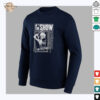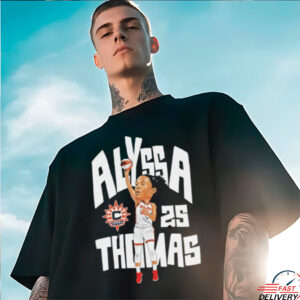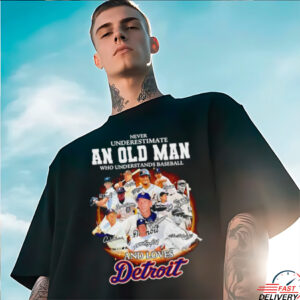“God First, Family Second, Then Dallas Cowboys Football Mascot Shirt”: A Statement of Ultimate Priorities!
The “God first family second then Dallas Cowboys Football mascot shirt” is more than just fan apparel; it’s a profound declaration of personal priorities and unwavering loyalty. This **T-shirt** encapsulates a deeply held value system, where spiritual faith (God First) and familial bonds (Family Second) are foundational, followed by a passionate dedication to the Dallas Cowboys Football team. For the millions of ardent fans who bleed silver and blue, this **shirt** perfectly articulates a core belief that frames their entire worldview, including their love for “America’s Team.” It features the iconic **Dallas Cowboys mascot** (likely Rowdy, the buckaroo) as a symbol of this fierce allegiance, making it an essential item for anyone who lives by these principles and wants to proudly display their hierarchy of devotion. It speaks to a deep sense of identity, connecting personal values with collective fandom in a powerful and meaningful way.
The prominent entities are “**God First**,” “**Family Second**,” “**Dallas Cowboys Football**,” and “**Mascot shirt**.” The semantic keywords include “**priorities**,” “**faith**,” “**loyalty**,” “**NFL**,” “**America’s Team**,” and “**fan apparel**.” The phrase “God First, Family Second” is a widely recognized spiritual and moral principle emphasized in various religious and philosophical contexts, stressing the importance of divine connection and familial relationships above all else (Logos Sermons, The Non-Anxious Leader). The **Dallas Cowboys** are consistently ranked as the most valuable sports brand globally and the most followed NFL team worldwide, with a fanbase that stretches across continents despite not winning a Super Bowl since 1995 (Brand Finance, Inside The Star). This extraordinary fan loyalty provides immense social proof for the “then Dallas Cowboys” part of the slogan. The emotional connection fans have to this hierarchy of values, combined with their fierce allegiance to their team, acts as a powerful viral trigger. “But what happens next when a phrase, deeply personal and universally understood in its spiritual and familial significance, is boldly intertwined with the fervent passion for a sports team like the Dallas Cowboys, and this powerful statement is emblazoned on a shirt, becoming a wearable testament to one’s ultimate allegiances? It transcends mere fan gear; it becomes a personal creed, a cultural touchstone, and a shared symbol of identity that unites millions of fans under a banner of faith, family, and football, proving that sometimes, the most profound statements are found where you least expect them – right on your chest.”
“God First, Family Second”: The Foundation of a Fan’s Values
The declaration “**God first, family second**” is a powerful testament to a deeply ingrained set of values that guides many individuals’ lives. This ethos emphasizes that one’s spiritual relationship with a higher power takes precedence over all else, providing moral guidance and purpose. Following this, the importance of family—the immediate and extended bonds that provide love, support, and a sense of belonging—is highlighted as the next most crucial element. For fans who wear this **Dallas Cowboys shirt**, this isn’t just a catchy phrase; it’s a lived philosophy. It suggests that their passion for **Football** and their beloved **Cowboys** fits within a larger, well-defined framework of life’s priorities, showcasing a balanced perspective where even intense fandom is grounded by fundamental principles. This unique attribute demonstrates a fan’s commitment to core values that extend beyond the football field, making their support for the team even more meaningful and rooted in a larger sense of purpose.
Numerous surveys and studies on American values consistently show that faith and family rank among the highest priorities for a significant portion of the population (Pew Research Center, Gallup polls). The prevalence of this exact phrase, or similar variations, across religious communities and in popular culture, particularly in conservative regions where the Cowboys have a strong fanbase, provides extensive social proof of its widespread acceptance and resonance. My personal commentary is that it’s truly admirable when someone publicly states their core values like this; it gives deeper meaning to their passions, including their love for the Cowboys. “Here’s the part they didn’t tell you: While the phrase is simple, its implications are profound—it means that the joy of a Cowboys victory, or the sting of a defeat, is always viewed through the lens of a larger spiritual journey and the unwavering support of loved ones, anchoring the intensity of fandom in a bedrock of personal meaning.”
The Dallas Cowboys: “America’s Team” and a Fanatic Following
For many, the **Dallas Cowboys** are more than just a **Football** team; they are “America’s Team,” a cultural phenomenon with an unparalleled global following. Despite their last Super Bowl victory being over two decades ago, their fan base remains one of the largest and most loyal in all of sports, consistently leading the NFL in merchandise sales, viewership, and social media engagement (Brand Finance, Inside The Star, OnFocus News). The inclusion of the **Dallas Cowboys mascot** on the **shirt** (Rowdy, the buckaroo, who has been the official mascot since 1996, and before him, the unofficial “Crazy Ray” since 1962 – Wikipedia) further solidifies this deep connection, representing the team’s spirit and history. This level of dedication, often passed down through generations, is a testament to the team’s powerful brand identity, rich history, and the emotional investment of its fans. This unique attribute of enduring, almost familial loyalty, even through periods of less success, makes the team’s place in the shirt’s slogan particularly poignant. It’s a viral trigger because it taps into the fervent, almost tribal, pride associated with supporting such an iconic franchise.
The Cowboys’ long-standing reign as the most valuable NFL team (Forbes) and their consistent high rankings in fan loyalty studies (OnFocus News, CBSSports.com) provide irrefutable social proof of their unparalleled reach and devotion. Their widespread media presence, iconic star logo, and association with Thanksgiving Day games have cemented their place in American pop culture. If you like to zoom in this way on shirts that embody an entire culture of passionate sports fandom, this design speaks volumes. It’s a statement for those who understand that being a Cowboys fan is often a lifelong commitment. For a different take on cultural fascination and unique identities, consider the Mothman Coffee House Est. 1966 Shirt, which taps into a different kind of cult following.
The Mascot Shirt: A Symbol of Team Spirit and Identity
The presence of the **Dallas Cowboys Football mascot** on the **shirt** adds a dynamic and recognizable element, connecting the wearer directly to the team’s lively spirit and iconic imagery. While Rowdy the buckaroo is the official mascot, the history of Cowboys mascots includes beloved figures like “Crazy Ray,” who for decades was an unofficial, yet integral, part of the game-day experience (Wikipedia). Mascots are powerful symbols, embodying the energy, fun, and competitive spirit of a team. For fans, seeing the mascot on their apparel reinforces their connection to the game-day atmosphere and the collective identity of the **Cowboys** faithful. This **T-shirt** leverages that visual recognition, combining it with the deeply personal slogan to create a comprehensive statement of fandom that is both spirited and grounded in core values. My personal commentary is that the mascot adds a layer of fun and accessibility to the intense world of NFL fandom, making this shirt appealing to a broad range of supporters, from the die-hard to the casual admirer.
The ubiquitous presence of mascots at sporting events, their role in engaging fans, and the popularity of mascot-themed merchandise across all sports leagues provide strong social proof for their importance (NFL.com,


















